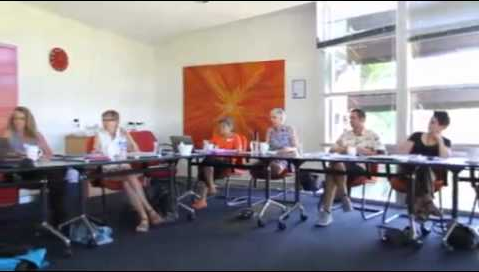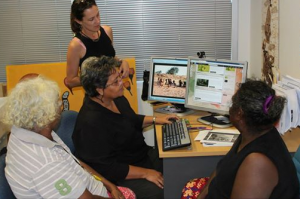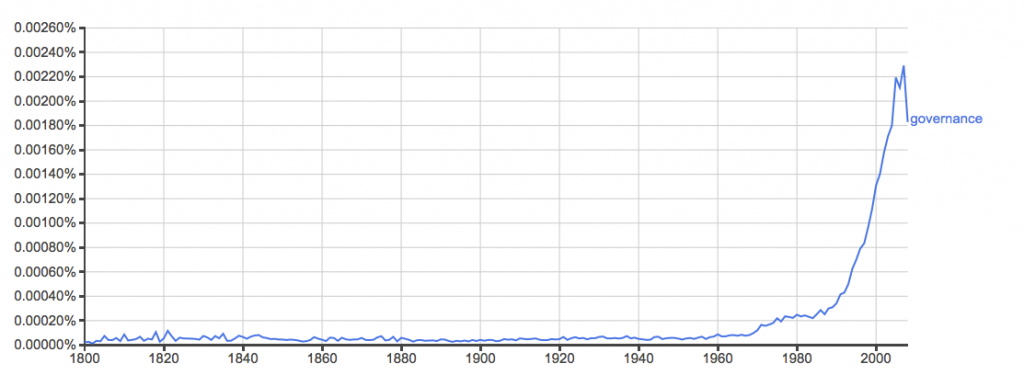‘Governance Lunches’ Book Proposal – DRAFT [Download .doc]
Summary
This book proposal comes from our discussions at the monthly NI-CRN Governance Research lunch discussions. We have in mind a book which provides a different angle on the work which we are doing, which presents it in quite a different style, and for a different audience from the other two books we are working on. In our lunches we find ourselves talking about the wider influences which frame our work and enable and require us to work and connect together in new ways. We will continue to use the transcriptions of our conversations (with permission) and the short case studies of our ideas, insights and frustrations, to develop our collective thinking. We will start to talk to publishers, but will be careful to work on this project carefully, and collaboratively, and take care that thinking about the book does not distract us from the interesting work we are doing in our lunchtime conversations. Please read the outlines below if you are interested in participating, and provide us with feedback.
Possible Titles
- Governance Issues and Practices in Australia’s Expanding North
- Northern Australia in the era of ‘good governance’
- Governance in the Expanding Civil Sector of Australia’s North
- Expand the North! Good Governance in Northern Australia
- Unlocking the North! (That’s an expression frequently used by NTG)
- Or other – please make suggestions.
Background and theoretical approach
This proposal emerges out of the conversations we have been having with the Governance Research Lunch Discussions (GRLD). At these meetings we have been talking about our work. Many of us are involved in research projects which relate to governance in Northern Australia, and which involve forming partnerships with government, industry, civil society organisations, aboriginal organisations, and natural resource managers. Sometimes our research is oriented around service delivery as much as it is oriented around research and knowledge production. It may involve operating with the authority of the academy, whilst also facilitating others to generate partnerships and forms of collaboration. And it may require us to evaluate the efficacy of partnerships at the same time as we are involved in brokering and supporting these same partnerships. In other words as researchers we are involved in doing governance in our projects at the same time as we are researching what governance in particular situations might be, or might become.

Fig. 1 Objects of Governance Workshop, 2013
There are all sorts of tensions that arise within this work as we, as academic researchers, become involved in these dualistic processes. We find ourselves deeply implicated in the current government project of devolving responsibilities for service provision to individuals and/or communities. Disjunctures become evident around policy rhetoric and practice, as the ‘normalisation’ of past government practice in Indigenous communities rides alongside contemporary governmental expectations, and as new corporations and forms of corporate law and decision making, enter into everyday life. And we find ourselves amidst a general confusion around monetisation of landscapes, knowledges and cultural practices, currently being experienced by many Australians, including many civil servants.
In considering a premise for a book focussed on governance in the expanding civil sector of the north, we have looked for a way to be able to speak to, and speak from, these complex situations in which we work.
- How might we let the tensions we are grappling with inform our writing?
- How might we make those felt pressures relevant to a wider audience of academics and practitioners?
Picking up on the notion that we are currently caught up in an era in which ‘governance’ has become a particular focus, this book draws on our own existing research and experiences to present a complex account of governance in the expanding civil sector of Northern Australia, and the way in which industry, government and the civil society interrelate. The new emphasis on partnerships, the need for governance practices to mediate the interrelation of the global and the local, are the sorts of issues the book will consider in speaking from and to situations subject to the gradual manifestation of neoliberal ideals within different tiers of government policy and practice.
Proposed contents
- The book takes the unique perspective of offering an account of governance practices in Northern Australia by detailing the experiences of academic researchers puzzling through some of the questions and tensions which arise in the course of carrying out their research. It emerges through the understanding that the research which we find ourselves doing now is itself an outcome of a current emphasis on governance in Northern Australia, and that our research and our role as researchers and analysts are themselves being shaped and conditioned by this moment.
- We imagine this book as largely arising out of the conversation we have at the lunchtime discussions (drawing from the transcripts), the stories and materials that people present, and the 1-page texts we have already written.
- It may present a series of (case) studies which by their presentation and co-location provide new ways of seeing and thinking possible futures in Northern Australia. In doing so, it calls into being a new audience of indigenous communities, ecological interests, tiers of government, policy makers, business and civil society organisations which are all involved and coordinated by this ‘era of good governance’. However, the relation between these participants and the people, places, knowledges and futures which may emerge from their interrelation remain under-determined by the text itself
- As such, this book presents a way of talking about ‘governance’ and ‘governance systems’ as currently emerging within the intersections between differing knowledge traditions, levels of government, local and global economies, the enactment of regulatory regimes and neoliberal forms and agendas are playing out within the contexts of particular situations in which researchers are involved. Understanding itself as an object of governance which participates in the era of which it speaks, this book exists as a device which can help various involved participants to think though how particular separations/connections and equalities/inequalities may be recognised and promoted by governance practices in Northern Australia.
- The book could begin with an introduction, contextualising contributions and a conclusion written as editorial guides (1) to the complex conditions which have helped the book to emerge as an account of governance in Northern Australia and (2) ways in which the book attempts to support new ways for collectively seeing and thinking possible futures in Northern Australia.
Proposed Audience
The audience for this book is deliberately imagined as complex and as in some ways eluding precise specification.

Fig 3: Working on the Warruwi Fisheries and Aquaculture Knowledge Partnership Project. Doing research and governance… (Courtesy of NI facebook page)
This book will be relevant for academics interested in community development, natural resource management, futures planning, policy formation, and governance practice, and in particular those interested in innovative and performative methods for elaborating theses topics. It will connect with current interests and debates within sociology, social anthropology, human geography and science and technology studies; and may be suitable for teaching undergraduate and graduate courses in science and technology studies, politics and governmentality, and qualitative research methods.
It will also be of relevance amongst workers in the wider and growing civil society and government sector in Australia and internationally. In particular for communities, groups and organisations like those with who the case study research for this text has been carried out. Through the structure of this text, existing collaborations between researchers and others are presented as part of more general processes of governmentality in which people, places and knowledges are currently involved, and coming to be constituted. Through the juxtaposition of specific practices and forums for action with others in the text, greater purchase is offered on the making of particular decisions on governance currently being made within a variety of situations and forums in Northern Australia. These juxtaposed accounts may also appeal to practitioners and others who are likewise caught up in other countries or regions where resource management or the relationships between government and indigenous communities remain open and at stake.
Finally this book may be relevant for those working in government departments and policy makers as an agenda for the development of Northern Australia continues to be pursued, and as both academic institutions and various knowledge communities continue to be enrolled as participants within this agenda. Presenting some of the messy complexities of negotiating acceptable governance processes within particular situations of practice, this book offers an alternative account to complement existing literature on policy formation and regional development.
How this book is different from other NI books?
Sitting alongside two other publications about our work coming out of the Northern Institute and the CRN, this book both complements and differs from these other publications. Told through a different lens, the chapters of this text show people, places and ‘the health of governance systems’ as all emerging out of the mundane and messy interactions in which the researcher interested in governance participates, and also emerges as a part.
This ‘take’ offers the opportunity for researchers to add to their other publications the ‘back-stories’ of their research. The studies of this book focus up some of the bridging and brokering work, both careful and ad hoc, through which the interrelation of researcher and their research situations rub along together, and what appears as at stake within these situations. Presenting these case studies side-by-side, a rich and complex account of ‘Northern Australia in the era of good governance’ emerges in this text.
Perhaps a quick way to grasp how this book is different to the NI and CRN books also being worked on at the moment is to recognise at the outset that the papers may focus on the same topics as those which authors are working on for the other books. However, these chapters are likely to be written in the first person, or contain narrative elements. We recognise that style of writing feels uncomfortable for some academics, although we strongly encourage everyone to ‘give it a go’ as editors are pleased to support people in doing this. While authors may choose to participate in all three books, you may also feel that your style of writing is more suited to the NI or CRN book than it is to the governance lunches book. In which case you may choose not to participate in this particular publication, but may find other possible collaborations and publications arising for you out of the lunchtime governance discussions.
